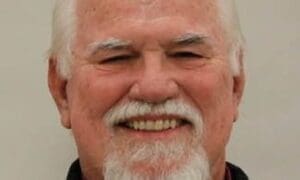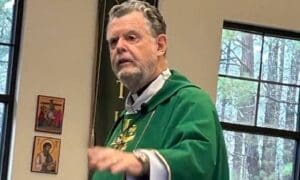The Islamic Community is halfway through their holy month of Ramadan. It is also the ninth month in its calendar. In the year 2010 it extends from August 11th through September 9th.
As has been done for the past nine years, the ICCA Community Center in Fayetteville has shared one of its fast days with those in the community.
For some 29 or 30 days, depending on what time of the year it falls, Muslims will wake before dawn, have breakfast, and not eat again until after dusk that evening. Currently that’s about 8:20 p.m.
The men and boys sat at tables on the right of the room with the women and girls sitting on the left. There were shelves on each side for those participating in prayer time to place their shoes. A call to pray was given at 8:09 p.m. and at 8:20 p.m. dinner was served. The fast is broken by eating fruit first, and we each had a date. There were a number of tables with food brought by the Muslims and we Methodists would have called it a Pot Luck Supper.
I had pulled over 100 pages from the Internet and had a good feel for the meaning of Ramadan. It is a time of becoming closer to God through devotions and good deeds. It is time for reflecting on ones shortcomings and asking God to help them overcome them. Also during this month Muslims try to read as much of the Qur’an as they can in Arabic. Though most do not speak it, they learn early what the words mean they are reading.
Interestingly enough, the Islamic calendar is based on a lunar calendar. It is 11 to 12 days shorter than the Gregorian calendar. The Gregorian calendar, used by much of the world, is a solar based one. Every four years one extra day is added. But in the year 4000, according to those who are mathematically inclined, the whole solar calendar will have to be scrapped and a new one figured out.
In the meantime, let’s all focus on trying to be the kind of a person that is pleasing to God.
Carolyn Cary is a Contributing Writer for The Citizen. She can be reached at [email protected].











Leave a Comment
You must be logged in to post a comment.